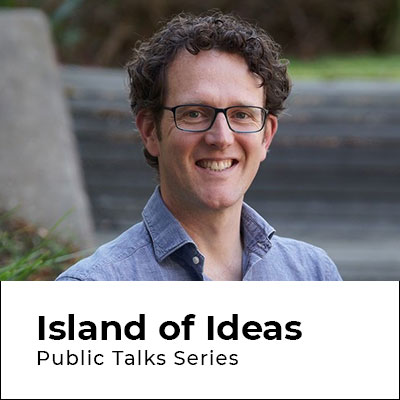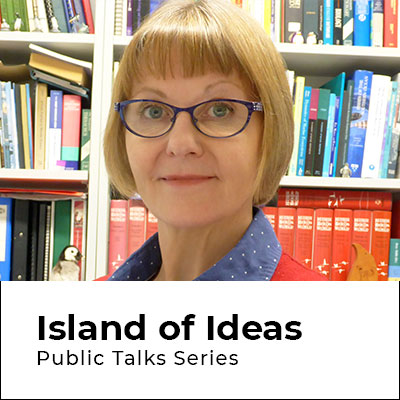Antarctic Wildlife: Skating on thin ice
Event description
Antarctic sea ice is changing, impacting the animals that depend on it. Join our panel of experts to discuss the recent changes and discover how they affect Antarctic wildlife.
The experts
- Professor Delphine Lannuzel, marine biogeochemist at the Institute for Marine and Antarctic Studies, University of Tasmania
- Dr Ed Doddridge, Research Associate, Physical Oceanography, Institute for Marine and Antarctic Studies, University of Tasmania
- Dr Barb Wienecke, seabird ecologist, Australian Antarctic Division
- Hosted by Dr Jess Melbourne-Thomas, senior research scientist with CSIRO Environment and Tasmania Patron, National Science Week
Attend online
Join this talk in-person, or online. To attend online, register via Zoom, and
we'll email you details. To register for the in-person event, get your free tickets through Humanitix.
Pre-event refreshments
Head to the venue early and enjoy complimentary refreshments from 6.00pm.
Subscribe
Find out about future events, and subscribe to our mailing list
for Island of Ideas updates!
Event partner
This National Science Week event event is brought to you in partnership by the Australian Meteorological and Oceanographic Society and the University of Tasmania.
About the experts

Professor Delphine Lannuzel is a leading expert in the field of marine biogeochemistry, with a particular focus on the interactions between sea ice and the ocean in polar regions. Her pioneering research investigates the role of sea ice as a seasonal reservoir of nutrients and trace metals, a topic which is essential for understanding the biogeochemical cycles and ecosystem dynamics in polar oceans. Professor Lannuzel uses a combination of fieldwork, laboratory experiments, and analytical techniques to elucidate the mechanisms by which trace elements, such as iron, are mobilized within sea ice and subsequently fuel primary productivity in polar waters. She also collaborates with international researchers to model biogeochemical cycles and assess the broader implications for global climate systems. Her work not only enhances our fundamental understanding of polar biogeochemistry but also informs policy and conservation efforts aimed at preserving these vulnerable and critical regions of our planet.

Dr Ed Doddridge is a prize-winning jam maker and Research Associate in Physical Oceanography at the Institute for Marine and Antarctic Studies in Tasmania. His research seeks to understand the Southern Ocean and its sea ice, which is at the centre of the global climate. It plays a key role in regulating the exchange of heat and salt between the surface ocean and the abyss, and the transport of heat to Antarctic ice shelves. In recent years, we have witnessed dramatic reductions in the amount of sea ice that forms around Antarctica. Ed’s research uses numerical models, theory, and observations to improve our understanding of the ocean around Antarctica and its role in global climate.

Dr Barbara Wienecke is a seabird ecologist at the Australian Antarctic Division (AAD), where she has worked since 1993. She has been studying penguins and other seabirds for over thirty years, participating in over fifteen expeditions to Antarctica and the sub-Antarctic islands. Her first Antarctic expedition was to Australia's Mawson Station in 1994, where she was employed as a seabird ecologist to conduct a field program on emperor penguins at Auster and Taylor Glacier for fourteen months. For many years, Barbara studied the foraging ecology of seabirds, using satellite tracking to determine the at-sea distribution of seabirds, particularly penguins, during various stages of their breeding cycle. This knowledge can be important, for example, for the establishment of Marine Protected Areas. Barbara has been responsible for a long-term demographic study of emperor penguin populations in East Antarctica using both ground and aerial surveys to monitor changes occurring in individual colonies.

Dr Jess Melbourne-Thomas is senior research scientist with CSIRO Environment and works on connecting research to decision-making for sustainability and climate change adaptation. She has a background in marine and Antarctic climate change science was a Lead Author for the Intergovernmental Panel on Climate Change (IPCC) 2019 Special Report on the Oceans & Cryosphere in a Changing Climate. Jess has received a range of awards for her excellence in research, science communication and policy engagement, and is an active supporter of diversity in STEM. Jess was one of 12 female scientists globally to have her portrait featured as a constellation on the ceiling of New York’s Grand Central Station as part of GE’s 2017 Balance the Equation campaign and was the 2020 Tasmanian Australian of the Year.

Tickets for good, not greed Humanitix dedicates 100% of profits from booking fees to charity



